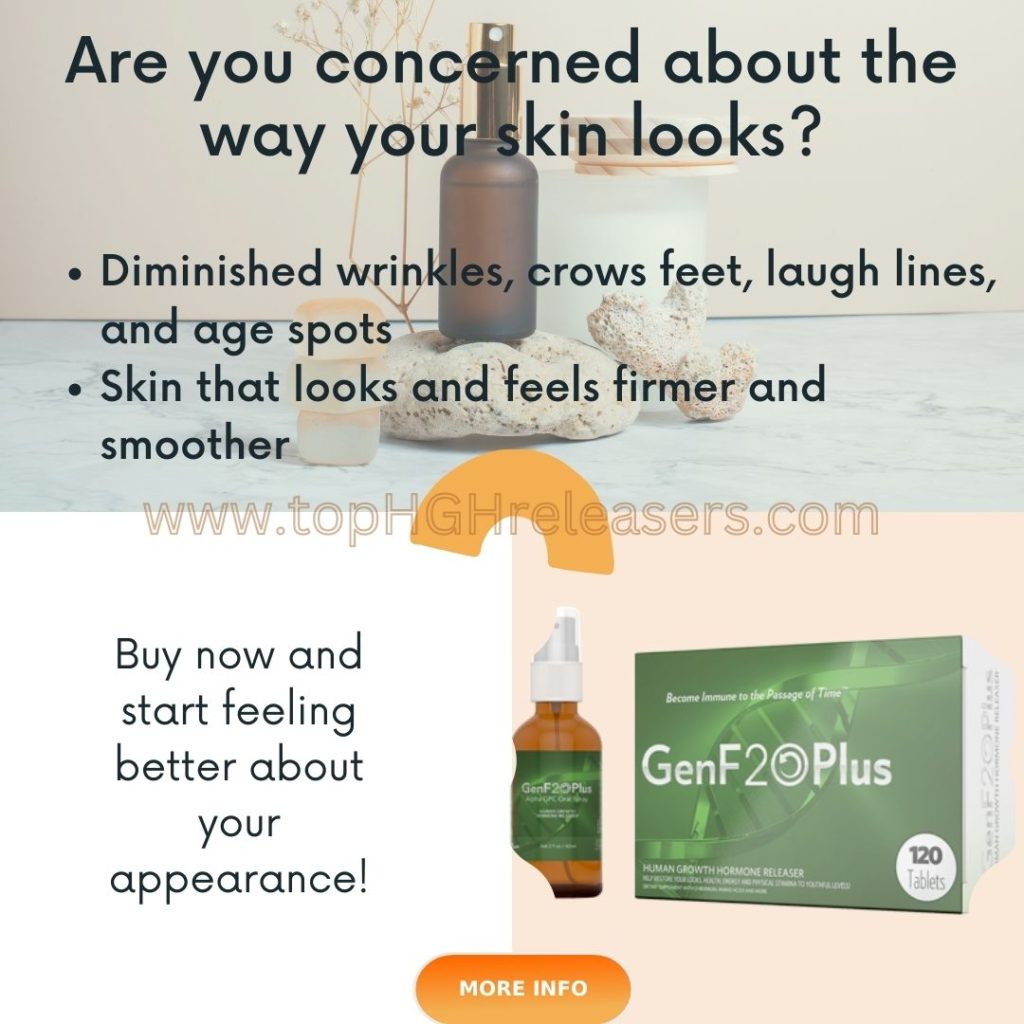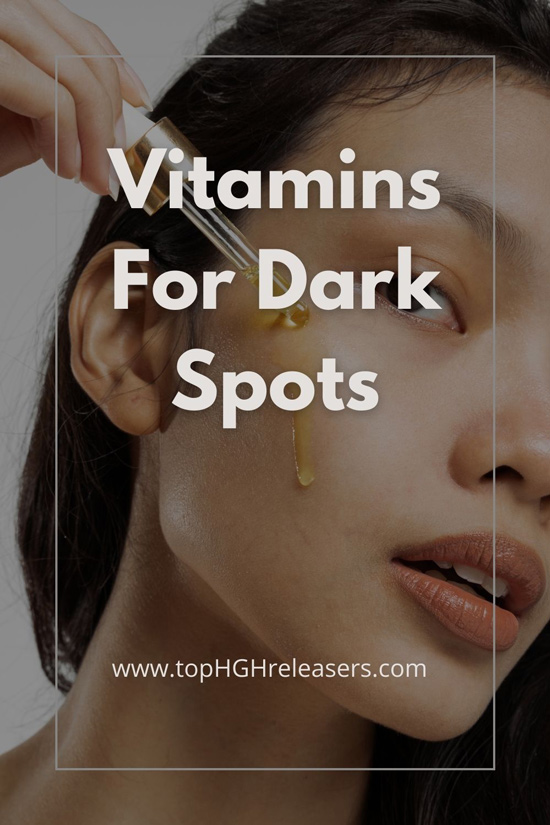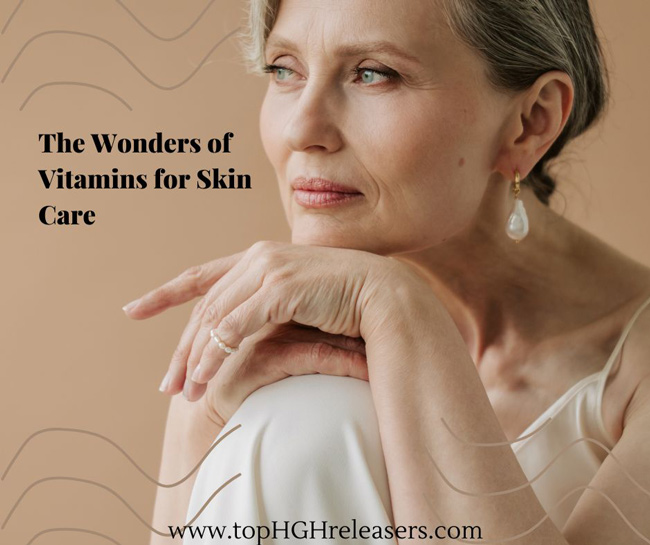Hyperpigmentation is a common skin condition that causes dark spots on the skin. It is the darkening of an area of skin due to an increase in melanin production. Melanin is the pigment that gives skin its color.
Hyperpigmentation can occur as a result of sun damage, inflammation, or other skin injuries. While it is not dangerous, it can be unsightly and lead to self-consciousness. There are a number of treatments available for hyperpigmentation, but some people may prefer to try natural remedies first like vitamins.
Contents
- 1 What are the different types of hyperpigmentation?
- 2 What are the symptoms of hyperpigmentation?
- 3 What causes hyperpigmentation?
- 4 Who is at risk for developing hyperpigmentation?
- 5 Is hyperpigmentation permanent?
- 6 How is hyperpigmentation diagnosed?
- 7 How can I treat hyperpigmentation?
- 8 Are there any home remedies for hyperpigmentation?
- 9 Vitamins For Hyperpigmentation?
- 10 How long does it take for vitamins to work on hyperpigmentation?
- 11 Topical Vitamins for Your Skin
- 12 The Wonders of Vitamins for Skin Care.
- 13 How to Get Rid of Dark Spots Naturally with Vitamins (Vitamins for skin whitening)
- 14 Does Taking Vitamin D Supplements Make Your Skin Darker?
- 15 Conclusion
What are the different types of hyperpigmentation?
There are two main types of hyperpigmentation: sunspots (liver spots, age spots) and melasma. Sunspots are small, dark patches that develop on the skin as a result of exposure to ultraviolet (UV) light. Melasma is a larger patch of hyperpigmentation.
What are the symptoms of hyperpigmentation?
The main symptom of hyperpigmentation is the darkening of the skin in the affected area. The darkness can range from light brown to black, depending on the severity of the condition.
What causes hyperpigmentation?
There are a number of different factors that can cause hyperpigmentation, including sun damage, inflammation, hormonal changes, and certain medications. Sun damage is the most common cause of hyperpigmentation, as UV light stimulates melanin production.
Inflammation can also lead to hyperpigmentation, as can injuries to the skin such as burns or cuts. Hormonal changes, such as those that occur during pregnancy or menopause, can also cause an increase in melanin production and subsequent hyperpigmentation. Certain medications, such as birth control pills or antipsychotic drugs, can also cause hyperpigmentation.
Who is at risk for developing hyperpigmentation?
Anyone can develop hyperpigmentation, but those with darker skin tones are more susceptible to the condition. This is because they have more melanin in their skin, to begin with. People who spend a lot of time in the sun or who have a history of inflammatory conditions are also at increased risk for developing hyperpigmentation.
Is hyperpigmentation permanent?
Hyperpigmentation is usually not permanent and will typically fade over time. However, some forms of hyperpigmentation may be permanent.
How is hyperpigmentation diagnosed?
Hyperpigmentation is usually diagnosed based on a physical examination and medical history. Your doctor will likely ask about your exposure to sunlight and any medications you’re taking that could potentially cause pigment changes in your skin. They may also order a biopsy to rule out other conditions with similar symptoms, such as vitiligo or psoriasis.

How can I treat hyperpigmentation?
There are a number of different treatments for hyperpigmentation, including topical creams and gels, supplements (vitamins), chemical peels, microdermabrasion, and laser therapy.
- Topical creams and gels containing ingredients such as hydroquinone or retinoids can help to lighten the skin and reduce the appearance of hyperpigmentation.
- Supplements such as vitamin C and vitamin E can also help to lighten the skin and reduce hyperpigmentation.
- Chemical peels and microdermabrasion can also help to improve the appearance of hyperpigmented skin by removing the top layer of dead skin cells.
- Laser therapy can be used to target specific areas of hyperpigmentation and break up the melanin pigment in the skin.
Are there any home remedies for hyperpigmentation?
Several home remedies have been traditionally used to treat hyperpigmentation, including lemon juice, apple cider vinegar, baking soda, aloe vera gel, etc.
- Lemon juice contains citric acid which can help to lighten the skin and reduce the appearance of hyperpigmented areas.
- Apple cider vinegar: Acetic acid is the main component of apple cider vinegar. When applied to the skin, it can lighten areas of hyperpigmentation. However, for safety reasons, always dilute with water first.
- Baking soda acts as a gentle exfoliant which can help to remove dead skin cells and improve the appearance of hyperpigmented areas.
- Aloe vera gel contains compounds that have anti-inflammatory and soothing properties which can help to reduce irritation and redness associated with hyperpigmented areas.
Vitamins For Hyperpigmentation?
There are several vitamins that can help with hyperpigmentation, including vitamin C, vitamin E, and vitamin K. Vitamin C helps to brighten the skin and promote collagen production, while vitamin E helps to protect the skin from free radical damage. Vitamin K helps to lighten dark circles under the eyes and reduce inflammation.
How long does it take for vitamins to work on hyperpigmentation?
It typically takes several weeks or months for vitamins to work on hyperpigmentation. It is important to be patient and consistent with your treatment regimen in order to see results.
Vitamins usually start showing results after two weeks of application, though this may vary depending on the formulation being used.
Topical Vitamins for Your Skin
Vitamins A, B, and C are particularly good for the skin. Vitamin A helps to keep the skin moisturized and can even reduce the appearance of wrinkles. Vitamin B protects the skin from sun damage, while vitamin C helps to promote collagen production and can even reduce the appearance of dark spots. Many skincare products contain all three of these vitamins, as well as other vitamins and minerals that are beneficial for the skin.
Vitamin A: Vitamin A is a fat-soluble vitamin that is found in many skincare products. It can help to keep the skin moisturized and can even reduce the appearance of wrinkles.
Vitamin B: Vitamin B helps to protect the skin from sun damage and can be found in many skincare products.
Vitamin C: Vitamin C helps to promote collagen production and can even reduce the appearance of dark spots. It is a popular ingredient in many skincare products.
Vitamin D: Vitamin D is a fat-soluble vitamin that is found in many skincare products. It can help to keep the skin moisturized and can even reduce the appearance of wrinkles.
Vitamin E: Vitamin E is an antioxidant that helps to protect the skin from free radical damage.
Vitamin K: Vitamin K helps to lighten dark circles under the eyes and can reduce inflammation. I
There are many vitamins that can help with hyperpigmentation. Vitamins A, B, and C are particularly good for the skin. Vitamin A helps to keep the skin moisturized and can even reduce the appearance of wrinkles. Vitamin B protects the skin from sun damage.
The Wonders of Vitamins for Skin Care.
When applied topically, vitamins are able to penetrate the outer layer of the skin and reach the epidermis, where they can go to work repairing damage and promoting cell growth.
Vitamins work for the skin by promoting cell health and providing nutrients that are immediately bioavailable for use by skin cells. Vitamins A, C, and E are particularly good at this because they’re antioxidants.
Antioxidants help protect the skin from damage caused by free radicals. Free radicals are unstable molecules that cause cellular damage and can lead to the formation of wrinkles and fine lines. Free radicals are generated by exposure to UV light, pollution, and other environmental stressors.
There are many different ways to get vitamins and antioxidants into your skin. You can find them in topical formulations such as creams, serums, and oils. You can also get them through oral supplements or by eating foods that are rich in these nutrients. Some good examples of antioxidant-rich foods include berries, dark leafy greens, nuts, and seeds. Adding these foods to your diet is a great way to boost your overall health as well as your skin’s health.
How to Get Rid of Dark Spots Naturally with Vitamins (Vitamins for skin whitening)
Different types of hyperpigmentation conditions respond to different vitamin treatments. For example, Vitamin A is excellent for exfoliating dead skin, while vitamin C promotes collagen production.
While there are various medical treatments available, many people prefer to treat their dark spots naturally with vitamins. Here’s everything you need to know about using vitamins to get rid of your hyperpigmentation.
Vitamin A for Exfoliation
Vitamin A is an important nutrient for overall health, but it’s also excellent for exfoliating dead skin. This makes it an ideal treatment for dark spots caused by sun damage. It can be found in food sources such as sweet potatoes, carrots, and spinach.
Vitamin C for Collagen Production
Vitamin C is another nutrient that’s important for overall health. It’s also necessary for collagen production, which is why it’s often used as a treatment for dark spots. Vitamin C can be found in citrus fruits such as oranges and lemons. You can also take vitamin C supplements for hyperpigmentation, but again, be sure to talk to your doctor first.
Vitamin E for Skin Repair
Vitamin E is a nutrient that’s known for its ability to repair the damage. This makes it an ideal treatment for dark spots caused by acne or other forms of skin trauma. Vitamin E can be found in food sources such as nuts and seeds.
When using vitamins to treat hyperpigmentation, it’s important to be consistent with your treatments. For best results, you should use a combination of topical and oral treatments.
Vitamin B12 major plays a role in regulating your skin’s pigment production.
Vitamin B12 is an effective treatment for dark spots. It can be found in food sources such as eggs, milk, and fish.
When using vitamins to treat hyperpigmentation, it’s important to be consistent with your treatments. For best results, you should use a combination of topical and oral treatments.
Does Taking Vitamin D Supplements Make Your Skin Darker?
Using a formulation with multiple vitamins is best for overall skin health. However, some vitamins (such as vitamin D) may cause more skin darkening and should be used with caution.
If you’re concerned about skin darkening, talk to your doctor or dermatologist about which vitamins are right for you.
There are a few things to consider when it comes to vitamin D and tanning.
- First, it’s important to understand what vitamin D is and what it does. Vitamin D is a nutrient that’s essential for overall health. It plays a major role in regulating your body’s pigment production, which is why it’s sometimes used as a treatment for hyperpigmentation.
- Second, it’s important to know that there are different types of vitamin D. The type that’s most relevant to tanning is called cholecalciferol, or vitamin D3. This type of vitamin D is the one most commonly found in supplements and sunscreens.
- Third, the science on this topic is inconclusive. Some studies have shown that cholecalciferol can help you tan better, while other studies have shown that it can cause your skin to darken.
Vitamin D Benefits
Though vitamin D is most well-known for its role in regulating pigment production, it has a host of other benefits for the skin.
- One such benefit is that it helps with cellular repair and growth. This makes it an important nutrient for wound healing and acne treatment. Vitamin D can also help keep your skin hydrated by promoting water retention.
- Another benefit of vitamin D is that it can help protect your skin from the sun’s harmful rays. It does this by increasing the production of melanin, which is the pigment that gives your skin its color. Melanin acts as a natural sunscreen, helping to protect your skin from UV damage.
So if you’re looking for a way to improve your skin health, consider adding vitamin D supplements to your routine. Not only will you be getting all the benefits listed above, but you’ll also be doing your part to stay healthy overall!
You should always be cautious of overexposure to the sun, even if you take vitamin D supplements.
https://pubmed.ncbi.nlm.nih.gov/26864127/
https://pubmed.ncbi.nlm.nih.gov/30326975/
https://pubmed.ncbi.nlm.nih.gov/8325381/
- The majority of research regarding Vitamin D can be found here:
https://scholar.google.com/citations?user=AMdiVTAAAAAJ
Conclusion
Hyperpigmentation is a common skin condition that can be caused by a variety of factors, including sun exposure, acne, and other forms of skin trauma. While there are many treatments available, using vitamins can be an effective way to achieve better results. In this article, we’ve looked most popular vitamins for treating hyperpigmentation.
We’ve also discussed the role of vitamin D in pigmentation and how you can use it safely to improve your tanning results. Though more research is needed on the topic, using multiple vitamins appears to be the best way to achieve overall skin health. So if you’re looking for an easy and affordable way to improve your skin’s appearance, consider adding a multivitamin supplement to your routine!



Leave a Reply